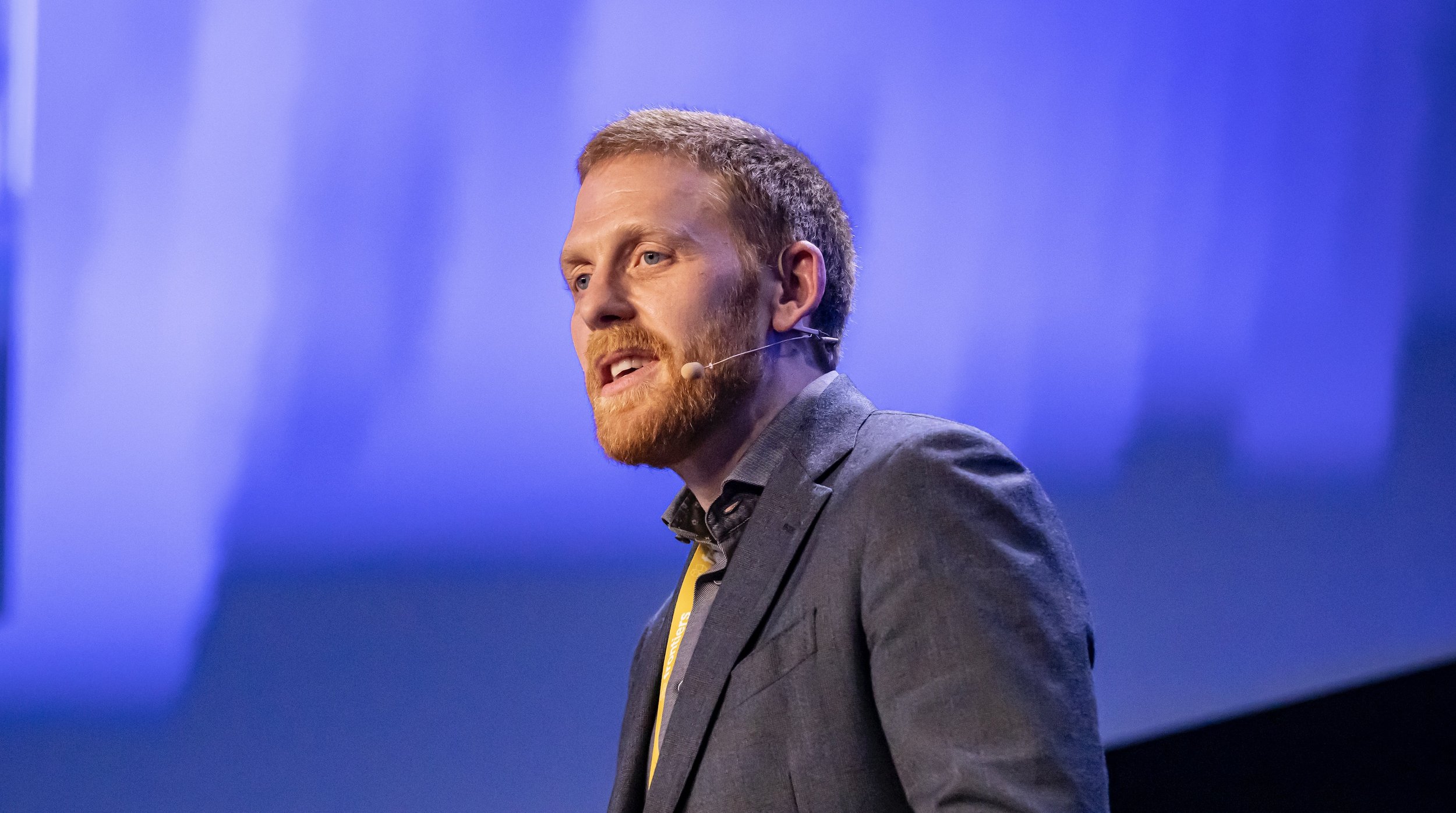

FRONTIERS FORUM VIRTUAL SERIES
Futures from the frontiers of climate science
Dr Paul Behrens
Leiden University, the Netherlands
15 November 2023


Adapt and survive, or transform and thrive?
The choices we make in coming years will impact the Earth for centuries and even millennia to come. From decarbonizing energy systems to restoring nature, we must urgently shift to sustainable societies that safeguard both human and planetary health.
Dr Paul Behrens was one of the first to measure the enormous climate benefits of shifting towards plant-rich diets. In his Frontiers Forum virtual event Paul explored how a Great Food Transition and other radical transformations can avert the climate crisis and steer humanity toward a hopeful, healthier future.
A discussion with high-level policy and climate science experts followed, on how to accelerate the necessary systems changes to keep global warming below the critical threshold of 1.5°C.
Paul’s pioneering analysis of the impact of dietary change on global emissions made headline news and won him the title of 2023 Frontiers Planet Prize International Champion. An expert in energy, food, and economic systems, he is also passionate about communicating science – with work appearing in The New York Times, Scientific American, and on the BBC. His popular science book, The Best of Times, The Worst of Times: Futures from the Frontiers of Climate Science, describes humanity’s current trajectory and possible futures in paired chapters of pessimism and hope. Paul is Associate Professor of Environmental Change at Leiden University, the Netherlands.
Session program
Keynote by Dr Paul Behrens
16:00-16:30
Expert discussion
16:30-17:00
Audience Q&A
17:00-17:15
Expert contributor bios
-
Emily Shuckburgh
Professor of Environmental Data Science
The University of Cambridge, UKA mathematician and climate scientist, Prof Emily Shuckburgh is Director of Cambridge Zero – which works to maximize the University of Cambridge’s contribution towards achieving a resilient and sustainable zero-carbon world. Her research interests include the use of machine learning in climate science as well as theoretical aspects of atmosphere, ocean, and climate dynamics.
Emily spent more than 10 years with the British Antarctic Survey, where she led a research program on the Southern Ocean and its role in climate. She has also advised the UK government on climate in various capacities, including as a Friend of COP26. In 2016 Emily was awarded an OBE for services to science and the public communication of science. She is co-author with HM King Charles III and Tony Juniper of The Ladybird Book on Climate Change.
-
Peter Newell
Professor of International Relations
The University of Sussex, UKProf Peter Newell is the Co-founder and Research Director of the Rapid Transition Alliance – a network of international organizations engaged in practical work, research, and campaigning to tackle the climate emergency. Peter has undertaken research, advocacy, and consultancy work on different aspects of climate change for more than 25 years, most recently focusing on the political economy of low carbon energy transitions.
As well as academic appointments in the UK and Argentina, Peter works extensively with NGOs, and sat on the board of directors of Greenpeace UK. He has also undertaken advisory work on climate for the UK, Irish, Indian, Swedish, and Finnish governments, and for international organizations including the United Nations Development Program. He has written and co-authored a range of books on policy and climate change issues, including Climate for Change and Governing Climate Change.
-
Nick Chater
Professor of Behavioral Science
The University of Warwick, UKProf Nick Chater’s research focuses on the cognitive and social foundations of rationality, with practical applications for business and public policy. In his role on the advisory board of the UK government Climate Change Committee, he examined how the latest behavioral science research can be used to help reduce the UK’s carbon emissions.
Nick is also a co-founder of the research consultancy Decision Technology, and co-created, and was resident scientist on, eight series of the BBC Radio 4 show, The Human Zoo. His book, The Mind is Flat, won the American Association of Publishers PROSE Award in 2019, for Best Book in Clinical Psychology. In 2023 he was awarded the Cognitive Science Society’s David E Rumelhart lifetime achievement award.




